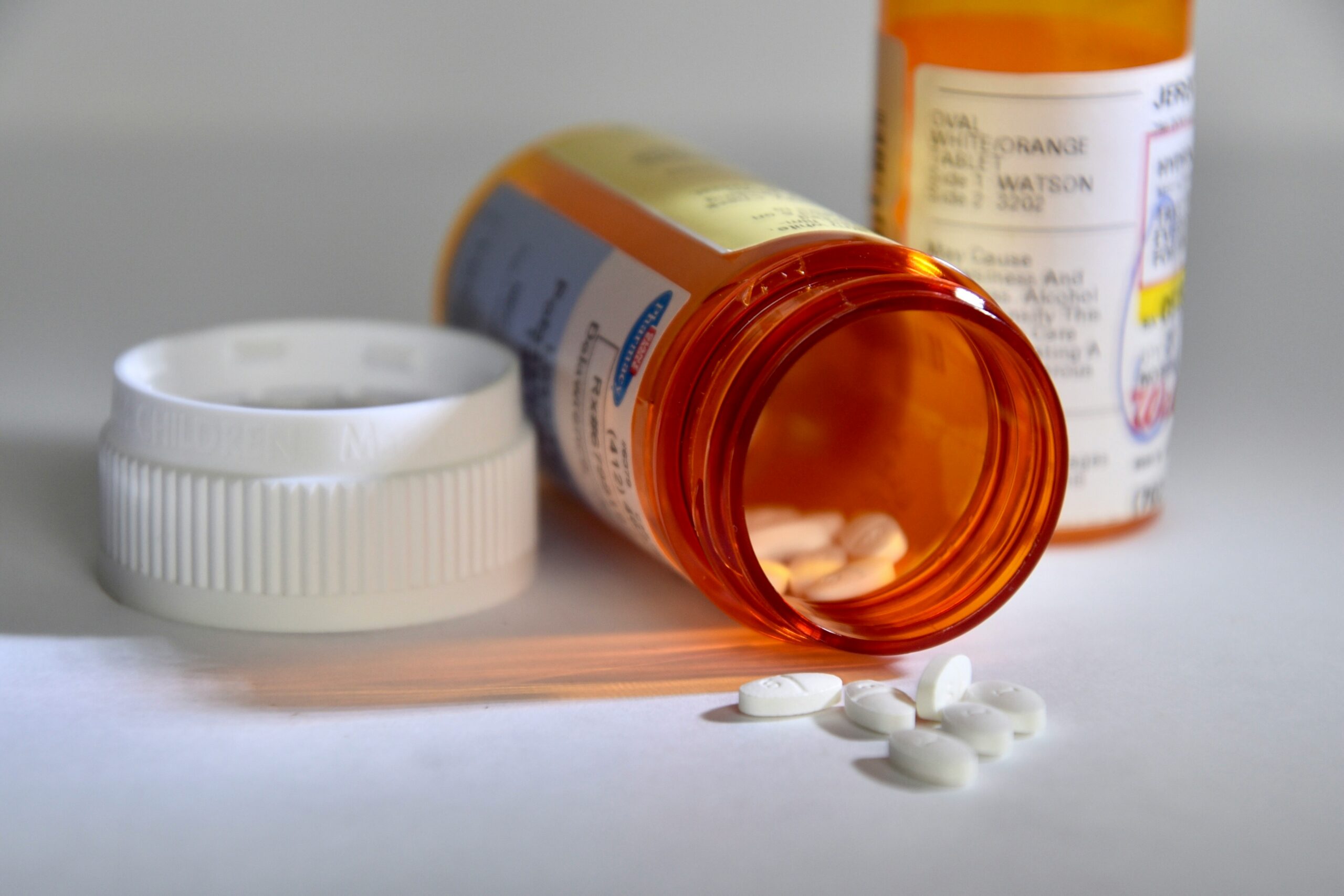Signs of Relapse: Stay On Track Throughout Recovery
Recovery from addiction is not a single event—it’s a lifelong journey filled with growth, challenges, and victories. Even when progress feels strong, relapse can remain a risk. That’s why recognizing the signs of relapse is critical. Identifying these warning signals early allows individuals and their support systems to step in, take action, and protect the progress that has been made.
In Asheville, North Carolina, Oasis Recovery Center and other local resources provide comprehensive support for individuals navigating this journey. By understanding the emotional and behavioral cues that often precede relapse, you can feel more confident in maintaining sobriety and living a healthier, more fulfilling life.

Understanding the Signs of Relapse
The signs of relapse do not usually happen in a single moment or through one isolated choice. Instead, it is often a gradual process that begins long before an individual takes a drink or uses a substance again. It can start subtly, with emotional struggles such as increased stress, anxiety, or feelings of disconnection.
Over time, these emotional challenges can lead to behavioral changes, such as pulling away from support systems, neglecting healthy routines, or returning to old environments linked to substance use. These shifts may seem small at first, but together they create a pattern that puts recovery at risk.
By learning to recognize the signs of relapse early—whether they appear as mood swings, avoidance of responsibilities, or increased secrecy—you or your loved one can step in, make adjustments, and prevent setbacks before they escalate into a full return to substance use.
Emotional Signs of Relapse
The earliest signs often appear on an emotional level. These shifts can feel subtle at first but may intensify if left unaddressed. Common emotional signs of relapse include:
- Increased Anxiety or Depression: Feelings of hopelessness, irritability, or unease can erode emotional stability.
- Isolation from Support Networks: Withdrawing from family, friends, or support groups is often one of the earliest red flags.
- Mood Swings: Unexplained anger, sadness, or irritability may reflect internal struggles.
Emotional relapse doesn’t mean someone has used substances again—it means they’re at risk. Catching these cues early is a chance to take action before things escalate.
Behavioral Indicators of Relapse
Changes in behavior are another layer of warning signs. These may include:
- Neglecting Responsibilities: Missing work, skipping classes, or falling behind on personal obligations.
- Dishonesty: Being vague or secretive about activities, whereabouts, or who they’re spending time with.
- Revisiting Old Environments: Seeking out people or places connected to substance use, even under the guise of “just visiting.”
Behavioral signs of relapse often follow emotional warning signs, but not always. Each person’s recovery journey is unique, which makes awareness even more important.

Why Being Aware of Relapse Signs Matters
Relapse is not a sign of failure—it should never be seen as proof that recovery has been lost or that progress does not matter. Instead, relapse is a signal, a warning that certain areas of life or recovery strategies may need adjustments. It highlights the reality that recovery is not linear, and setbacks can happen even after long periods of sobriety.
Viewing relapse through this lens removes shame and allows individuals to focus on what really matters: making changes that strengthen their foundation moving forward. Awareness of the signs of relapse provides a powerful opportunity to intervene before substance use reoccurs.
By noticing emotional struggles, behavioral shifts, or renewed exposure to triggers, individuals can take proactive steps to course-correct. This perspective transforms relapse from an endpoint into a valuable checkpoint—a reminder to reassess coping skills, reconnect with support, and realign with personal goals for long-term recovery.
Supporting Long-Term Recovery
Staying alert to the signs of relapse helps individuals:
- Prevent Backsliding: Small course corrections can prevent a full relapse.
- Strengthen Accountability: By recognizing triggers and behaviors, accountability grows stronger within oneself and with support systems.
- Establish Positive Habits: Replacing negative coping mechanisms with positive, healthy routines reinforces progress.
Recovery is built step by step, and staying attentive to early warning signs strengthens long-term stability.
Minimizing Negative Consequences
If relapse is left unchecked, the consequences can be damaging. Recognizing signs of relapse early reduces risks such as:
- Physical and Mental Health Decline: Substance use can quickly undermine the body and mind.
- Broken Relationships: Trust with family, friends, or colleagues may be strained by relapse.
- Loss of Stability: Employment, housing, or education may be affected.
Proactive awareness doesn’t just protect sobriety—it protects every aspect of a person’s life.
Responding to Relapse Signs Effectively
Once you recognize the signs of relapse, the most important step is to respond with intentional action. Awareness alone is powerful, but it must be paired with practical strategies to protect recovery and prevent a return to old habits.
Taking action can mean reaching out to a sponsor, attending an extra support group meeting, or adjusting daily routines to create healthier patterns. It may also involve leaning more heavily on coping skills such as mindfulness, exercise, or journaling to process stress in constructive ways.
For some, it requires seeking professional help to strengthen accountability and develop new tools for handling triggers. No matter what approach is taken, the key is to respond quickly and consistently.
Relapse prevention is not about perfection but about resilience—the ability to recognize challenges early and use proven strategies to maintain sobriety, rebuild confidence, and keep moving forward on the path to long-term recovery.

Strengthen Support Systems
- Engage in Support Groups: Regular meetings like AA, NA, or other community-based groups provide encouragement and accountability.
- Communicate Openly: Talking with a sponsor, therapist, or trusted loved one can relieve pressure and restore connection.
Isolation fuels relapse, while strong support networks protect recovery.
Adopt Healthy Coping Mechanisms
Healthy outlets help manage stress and reduce the temptation of old habits:
- Exercise and Physical Activity: Movement reduces stress, boosts mood, and improves overall well-being.
- Mindfulness Practices: Meditation, yoga, journaling, or breathing exercises provide clarity and peace.
- Creative Outlets: Art, music, or writing can channel emotions into healing expression.
The more coping tools a person has, the easier it becomes to replace unhealthy urges with healthier alternatives.
Set Realistic Goals
Goals should be achievable and motivating:
- Short-Term Milestones: Breaking recovery into smaller steps fosters confidence.
- Long-Term Vision: Focusing on what life looks like years down the road keeps motivation strong.
Each small win builds momentum, making relapse less likely.
Seeking Professional Help
Sometimes, the signs of relapse are more than a temporary setback or moment of struggle—they can be a clear indication that professional intervention is the best next step. While self-help tools and peer support are incredibly valuable, there are moments when additional guidance is needed to prevent a full return to substance use.
Treatment programs offer a safe and structured environment where individuals can focus entirely on their recovery without the distractions or pressures of everyday life. These programs provide consistency, accountability, and access to evidence-based therapies that address both the emotional and behavioral aspects of relapse.
Professional care also allows treatment to be tailored to each individual’s unique needs, whether that means addressing co-occurring mental health conditions, developing new coping strategies, or rebuilding life skills.
By stepping into a professional program when relapse warning signs appear, individuals can stabilize their recovery, strengthen their foundation, and gain the tools necessary for long-term success.
Options may include:
- Outpatient Programs: Flexible support for individuals balancing work, school, or family.
- Intensive Outpatient or Partial Hospitalization Programs (IOP/PHP): More structured care without full-time residential treatment.
- Residential Treatment: A safe, immersive environment for those needing intensive care.
- Therapy and Counseling: One-on-one or group sessions to address emotional struggles and triggers.
At Oasis Recovery Center in Asheville, comprehensive care plans are customized to meet individual needs. If you or someone you love notices warning signs, professional support can make all the difference.
Preventing Relapse: Building a Resilient Recovery
Recognizing signs of relapse is only the beginning—prevention is the ongoing process. A resilient recovery is built on consistent strategies and a proactive approach.
- Stay Connected: Regularly check in with your support system.
- Create a Relapse Prevention Plan: Write down coping strategies, emergency contacts, and safe activities.
- Avoid High-Risk Situations: Recognize and avoid environments where substance use may be present.
- Prioritize Self-Care: Healthy sleep, nutrition, and rest strengthen the mind and body.
When relapse prevention becomes part of daily life, sobriety feels less like a challenge and more like a sustainable way of living.
FAQs About Relapse Signs
What are the main signs of relapse to watch for?
Look for emotional and behavioral changes such as increased isolation, neglecting responsibilities, mood swings, and seeking environments associated with past substance use.
How can I avoid relapse throughout my recovery journey?
Utilize support systems, maintain healthy habits, establish realistic goals, and remain aware of triggers. Engaging in community programs and professional therapy can also aid greatly.
What should I do if I notice signs of relapse in myself or others?
Take proactive steps by increasing support, practicing healthy coping mechanisms, and potentially seeking professional help. Early intervention can prevent a return to substance use.

Taking the Next Step Toward Lasting Recovery
Understanding the signs of relapse is one of the most powerful tools in protecting sobriety. By recognizing emotional and behavioral shifts, responding effectively, and leaning on professional support when needed, individuals can continue forward on their recovery path with strength and confidence.
Relapse does not define you—it simply signals the need for adjustment and renewed focus. At Oasis Recovery Center in Asheville, we provide the guidance, care, and community support needed to help you stay on track.
If you or a loved one is noticing signs of relapse, don’t wait. Contact us today or call our team to learn more about how we can help you strengthen your recovery journey.








